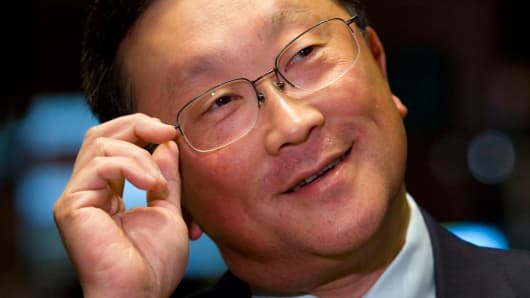The device you may be reading this article on right now is an indispensable window to the world. But, it can also be an unlocked door to your most private medical records, your company's most important customer data or your country's most vital secrets. I'm not being alarmist. There are crippling threats enterprises around the world face as they move toward a mobile-first, cloud-first environment.
In order to better tackle these threats, we announced today that BlackBerry has signed an agreement to acquire Secusmart. It's a strategic move for BlackBerry, and it provides another important tool for enterprises to combat the type of threats that are becoming more common such as electronic eavesdropping and data theft.


